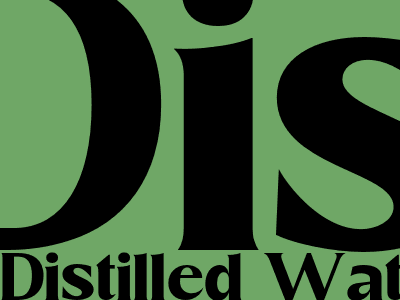
Distilled Water
Distilled Water: A Deep Dive into Its Benefits, Drawbacks, and Uses
Understanding Distilled Water
Distilled water is a type of purified water that has undergone a distillation process to remove impurities, minerals, and other contaminants. This process involves boiling water and collecting the steam, which is then condensed back into a liquid form. The resulting water is free from impurities and has a neutral pH.
Benefits of Distilled Water
* **Pure and Contaminant-Free:** Distilled water is one of the purest forms of water available, as it undergoes a rigorous purification process that removes harmful substances. * **Safe for Medical Use:** Distilled water is commonly used in medical applications, such as injections, intravenous fluids, and laboratory tests, due to its purity and sterility. * **Ideal for Sensitive Plants:** Distilled water is preferred for watering sensitive plants, as it does not contain minerals or chlorine that can damage roots. * **Neutral Taste and Odor:** Distilled water has a neutral taste and odor, making it a good choice for cooking, brewing coffee, and making ice.
Drawbacks of Distilled Water
* **Lacks Essential Minerals:** Distillation removes not only impurities but also essential minerals, such as calcium and magnesium. This can make distilled water unsuitable for long-term consumption as a sole source of hydration. * **Can Leach Minerals from Foods:** Cooking with distilled water can leach minerals from foods, potentially affecting their nutritional value. * **May Promote Tooth Decay:** The absence of fluoride in distilled water can contribute to tooth decay if it is used for drinking or brushing teeth.
Uses of Distilled Water
* **Medical and Pharmaceutical:** Injections, intravenous fluids, laboratory tests, medical devices. * **Cosmetics and Personal Care:** Skin care products, hair conditioners, perfumes. * **Automotive:** Batteries, cooling systems, windshield washer fluid. * **Household:** Ironing, steam cleaners, humidifiers.
Important Considerations
* **Not a Replacement for Tap Water:** Distilled water should not be used as a primary source of hydration, as it lacks essential minerals. It is recommended to supplement with mineral-rich water sources, such as tap water or bottled water. * **Proper Storage:** Distilled water should be stored in a clean container to prevent recontamination. It should not be left open to the air for extended periods. * **Consult Healthcare Professionals:** Individuals with specific health conditions should consult with healthcare professionals before using distilled water.
Conclusion
Distilled water is a versatile and valuable resource with various applications. Its purity makes it ideal for specific uses, but it's essential to be aware of its potential drawbacks and consider alternatives for everyday hydration.
Comments